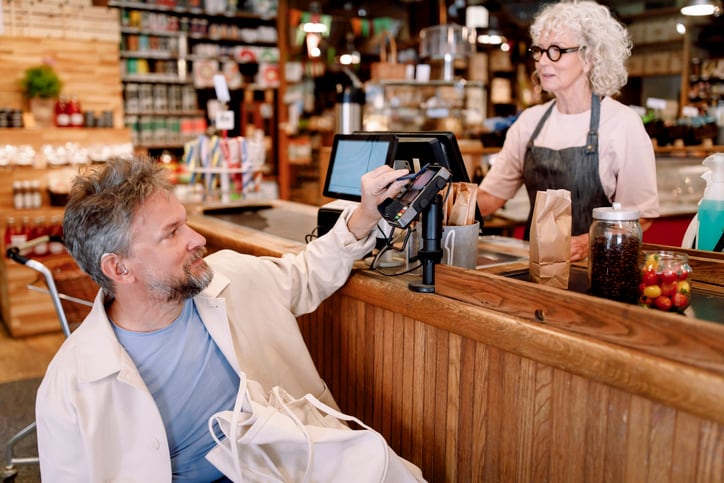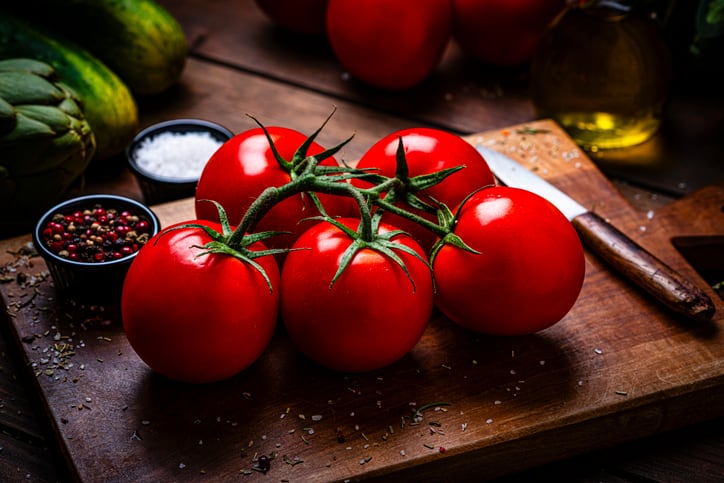JM Smucker continued to narrow its focus on successful brands like Uncrustables and Café Bustelo in the second quarter. While sales increased 3%, the company’s adjusted earnings per share plummeted 24% year over year.
Chairman and CEO Mark Smucker said the company’s portfolio is positioned to capture consumers seeking value and prioritizing their spending.
“It features offerings across the value spectrum, in the attractive categories of coffee, snacking and pet,” he said. “Within these categories, we are evolving our brands to meet the needs and preferences of today’s consumers and prioritizing resources towards our largest opportunities through our key growth platforms: the Uncrustables, Café Bustelo, Milk-Bone, Meow Mix and Hostess brands.”
Smucker’s $2.10 per share on revenue of $2.33 billion missed analyst expectations, with consensus estimates at $2.12 per share on revenue of $2.32 billion, according to Earnings Whispers.
Uncrustables and spreads a mixed bag
JM Smucker continues to struggle with its spreads business, but its Uncrustables line of frozen sandwiches delivered strong growth in the segment.
The Uncrustables brand grew 4% in the quarter, putting it on track for double-digit growth and estimated to generate over $1 billion in net sales by the end of the fiscal year, Smucker said.
“The brand is infusing itself throughout pop culture and social media, as demonstrated by the 4 million new households the brand added over the past year alone,” he said, adding that the product’s 25% household penetration shows a significant runway for growth.
Smucker is leaning in on the brand, launching two high-protein varieties this year – Up & Apple and Bright-Eyed Berry. The food manufacturer is also generating buzz with Uncrustables by releasing limited edition flavors with Berry Burst over the summer and PB Choco Craze in the fall.
Smucker noted that the Uncrustables brand is also making new inroads in convenience stores, nearly tripling its sales over the past year.
Meanwhile, overall sales in the frozen handheld and spreads sector of the portfolio declined 5% for the quarter ended October, “primarily driven by decreases for JIF Peanut Butter and Smuckers fruit spreads, partially offset by an increase for Uncrustables sandwiches,” according to Smucker.
JIF was down 12%, due in part to heightened consumer activity for the year-ago quarter, when shoppers were restocking after multiple hurricanes.
Café Bustelo to the rescue
Coffee was another bright spot for the quarter, with net sales up 21% across all formats and brands, Smucker noted.
That is due in part to price increases in the category doled out over the last several quarters.
The category gained both dollar and volume share for the quarter, and JM Smucker aims to build on that market share growth to become one of the four largest at-home coffee brands in the US.
“We anticipate another year of double-digit net sales growth for the Café Bustelo brand as we advance our long-term strategy and make progress on our ambition for Café Bustelo to become a top-four brand in the at-home coffee category.”
Over the most recent 13‑week period, Café Bustelo’s sales within their US retail coffee business were up 41% in dollars, and about 9 percentage points of that growth came from buying more product, not just paying higher prices.
JM Smucker is using the same playbook with Café Bustelo as with its Uncrustables brand by launching new roast profiles to broaden the segment’s appeal.
The company, along with the rest of the US coffee industry, is still managing the on-again, off-again tariffs on commodities like green coffee, which was most recently removed from the tariff list in mid-November.
President Trump’s removal of green coffee from the tariff list means no more price increase for the rest of the calendar year, according to Smucker.
“Given the recent changes to US trade policy to exclude tariffs on green coffee, we are no longer contemplating another pricing action in early winter,” he said. “Without this pricing action, we will not fully recover green coffee tariff costs incurred in this fiscal year, which negatively impacts our adjusted earnings per share.”
Hostess turnaround?
JM Smucker’s purchase of Hostess in 2023 continues to pose challenges for the company.
“We continue to advance our strategy to stabilize and position the brand for long term growth by executing on our three priorities of strengthening the portfolio, elevating our execution and reigniting sustainable growth,” Smucker said.
Comparable sales dropped 3% for the quarter in sweet baked snacks, but Hostess Donettes and Hostess Cupcakes saw a volume mix growth of 6% and 7%, respectively. Those two lines now make up roughly half of the sweet baked snacks segment, Smucker said.
Profit in sweet baked snacks came in lower than expected, too, largely due to unanticipated costs associated with JM Smucker’s bakery consolidation strategy, Smucker said.
The plan includes the closure of its Indianapolis, Ind. manufacturing facility, which is expected to save the company $10 million this year and $30 annually.
“We anticipate sequential improvement in both net sales growth and absolute segment profit for the remainder of the fiscal year as we continue to advance our strategy and the closure of the Indianapolis manufacturing facility begins to benefit the business overall,” he said.
The bakery consolidation plan also includes reducing the product count by 25% “to simplify our offerings as we prioritize high-velocity and margin-accretive SKUs,” Smucker said.
JM Smucker is also working to turn around the struggling brand through brand building and culturally relevant marketing and packaging.
While the company is closing out and divesting brands, it is also relaunching some legacy products, such as the Susie Q’s snacks, which was released in September.




